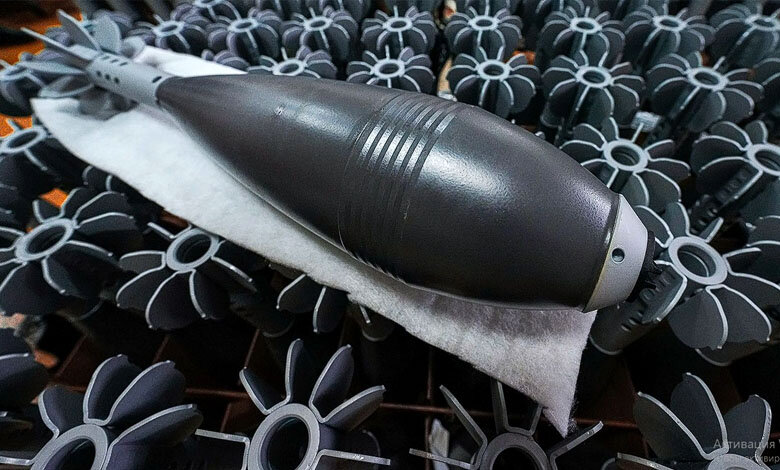Lobbying cloaked by humanism: how People’s Deputies reduced fines for failing to supply weapons to front lines
On Thursday, the Verkhovna Rada passed bill 6013, which, in addition to repealing the Commercial Code, included amendments to reduce fines for defense suppliers.
Prior to the vote, the Anti-Corruption Action Centre issued a statement accusing Servant of the People People`s Deputy Halyna Yanchenko of promoting bill No. 12202, which proposes exempting defense suppliers who delayed weapons supplies to the frontline by more than 30 days from paying a fine amounting to 7% of the contract's value.
"Yanchenko is also promoting amendment No. 502 to bill No. 6013, which was registered on behalf of Oleksii Movchan and rushed by the Verkhovna Rada's Economic Committee at her initiative. This amendment also suggests canceling fines," the statement read.
According to the AntAC, bill No. 12202 proposes exempting suppliers from fines in contracts concluded after the law takes effect, while amendment No. 502 to bill No. 6013 also applies to contracts that have already been signed.
A few hours later, the amendment and the bill were passed, and Yanchenko accused the AntAC of manipulation.
"Currently, there are three fines, and they are unreasonably high. The first one is 13% for the first month of delay, although the average profit margin of a defense supplier is 5–7% per contract," Yanchenko told Censor.NET.
"We aim to retain a single fine, specifically, a daily penalty. This is the most effective fine, as it accrues for each day of delay until the contractual obligations are fulfilled. The rate is 0.1% per day, which amounts to approximately 3% per month, 6% for two months, and so forth," Yanchenko explained, adding that this is stipulated in the Civil Code of Ukraine.
"All commentators are correct: the 7% fine for delays exceeding 30 days in fulfilling supplier obligations under the Commercial Code of Ukraine is indeed being abolished; at the same time, other sanctions provided for by the Civil Code of Ukraine remain applicable, along with those that may be expressly stipulated in the executed contracts. Concerning the fact that manufacturers may earn less than they would pay in penalties, this is a highly subjective assessment, as manufacturers include profit margins and continue to significantly expand production. Ultimately, Ukraine adheres to the principle of freedom of contract, which allows parties to negotiate higher profitability for suppliers or to include additional sanctions from customers when finalizing contracts," stated Maksym Kostetskyi, legal advisor to the IACC (Independent Anti-Corruption Commission), lawyer, and volunteer.
"Additionally, it should be emphasized that the Commercial Code of Ukraine is indeed a vestige of the post-Soviet economy that does not conform to European corporate law standards and OECD (Organisation for Economic Co-operation and Development) guidelines. Civil law experts have been pushing for its abolition for many years, but it is important that there is no simultaneous decline in the regulatory framework for the entire sector, and that it is replaced in stages," the lawyer said. ," the lawyer added.
Oleksii Movchan's amendment reads as follows:
"The provision of the third paragraph of part two of Article 231 of the Commercial Code of Ukraine, regarding the imposition of a fine amounting to 7 percent of the value of goods (works, services) for which there is a delay in the fulfilment of obligations, shall not apply to contractors performing state defence procurement agreements during the period of martial law in Ukraine, as introduced by the Decree of the President of Ukraine 'On the Introduction of Martial Law in Ukraine' dated February 24, 2022 No. 64/2022, and ratified by the Law of Ukraine 'On Approval of the Decree of the President of Ukraine "On the Introduction of Martial Law in Ukraine"' dated 24 February 2022 No. 2102–IX, and not completed as of the date this Law takes effect."
People's Deputy Ihor Fris attempted to convince the author of the article that the amendment would not apply to existing contracts, but the final sentence states otherwise.
In fact, the amendments raise serious concerns about the awareness of People's Deputies regarding how the arms supply market functions and the potentially fatal consequences these measures might entail.
Equally concerning is whether these amendments represent direct lobbying by the special arms importers themselves.
Why does the author entertain such an opinion? Because I have personally heard complaints about fines from special arms importers. In this regard, they are no different from the "snowflake" food suppliers to the Ministry of Defence.
In October, in an article about the initial attempts to dismiss the head of the DPA (Defense Industry Agency), Maryna Bezrukova, domestic arms suppliers cited fines as one of their grievances. Specifically alleging that they pay more fines than their foreign counterparts.
At the time, DPA dismissed these accusations.
"As of today, foreign counterparties have paid the Agency EUR 57,249 and USD 10,384. At the same time, the litigation process is lengthy, with cases totaling EUR 5.5 million and USD 566 thousand currently pending in courts of various jurisdictions. The amount of enforced judgments and claims against special importers exceeds UAH 3.9 million. However, it is worth noting that we face the biggest delays in the fulfillment of government contracts from special importers. Currently, cases on the recovery of penal sanctions exceeding UAH 2.2 billion are being considered in courts," the Agency stated in its response to Censor.NET's inquiry.
Regarding domestic producers, the amount of enforced judgments and claims totals UAH 16 million. Frankly, given that we are usually talking about billion-dollar contracts, this amount is insignificant in this context.
Moreover, based on the author's 1.5 years of experience in the Public Anti-Corruption Council, it appears that the 13% fine has not been applied (at least not recently).
The reference to the 3% earnings of defense suppliers is manipulation. For example, the allowed margin on drones and EW (electronic warfare) equipment today is 25%. Special exporters indeed receive 3% of the contract, but this never compensates for how much margin is siphoned off by intermediaries in foreign countries.
For all other cases, there is no regulation — the agreed price (including the margin) is what stands.
Therefore, it is absolutely disgraceful to play the "last penny is taken away" narrative here.
Moreover, while the supply of arms to Ukraine is undoubtedly associated with serious challenges, it is also important to acknowledge that suppliers themselves frequently exploit force majeure clauses.
One of the former deputy ministers of defence even had a bitter joke: "Really? Has the gunpowder factory in Bulgaria exploded again—for the third time this month?" At the same time, obtaining a force majeure certificate from the regional office of the Chamber of Commerce and Industry was relatively easy and inexpensive. As a result, the ministry is attempting to standardize this process by requiring a certificate from Kyiv. However, suppliers are resisting this initiative as well.
In earlier versions of the contracts, the clause on the Responsibility of the Parties read something like this:
"If the Contractor fails to deliver the Goods to the Customer within the period stipulated in this contract, the Contractor shall pay the Customer a penalty of 0.01% of the value (price) of the Goods not delivered on time for each day of delay. The amount of such penalty shall not exceed 10% of the value (price) of the Goods not delivered on time. The Customer reserves the right to make other legal and/or contractual claims as described in Clause 12 of the Contract.
If the Contractor refuses to fulfil its obligations
Under the Contract, after the Effective Date of the Agreement (EDA), the Contractor shall be obligated to pay a penalty of 5% of the value (price) of the Goods not delivered under this Contract.
Now, why should we not agree to the concessions proposed by the People`s Deputies? Because every day of delay in the supply of ammunition costs the lives of our soldiers. Corrupt contracting practices have already led to a situation where the Ukrainian army has not received a single mine under a contract with Lviv Arsenal, which was supposed to supply over 100,000 mines.
The price offered by Lviv Arsenal for the mines was significantly higher than that of its competitors. This is far from the 3% they are trying to attribute to it.
The well-known scandal surrounding STE (Spetstechnoexport) prices, as reported by journalist Mykhailo Tkach, highlights significant overpricing issues.
Meanwhile, accounts receivable over 365 days old amounted to UAH 9.1 billion as of 26 June 2024, according to the Ministry of Defence's response to a request from the Public Anti-Corruption Council. Receivables with shorter terms amount to even larger sums.
In reality, reducing fines would leave DPA completely defenceless against arms suppliers, exposing the Ukrainian army to an even greater risk of not receiving weapons. As a reminder, according to EP (Ekonomichna Pravda), one Ukrainian factory that supplied faulty 120-mm and 82-mm mortar rounds to the frontline also failed to deliver almost a third of the ammunition contracted across all items.
Movchan’s amendment effectively pardons this by reducing fines!
Furthermore, past experiences with lowering penalties in other areas of MoD procurement, such as food supply contracts, have shown that this approach is ineffective and only leads to a deterioration in the quality of supplies.
For example, in 2023, when the terms (due date) of a contract concerning food supply deadlines were violated, the supplier was required to pay the customer (the relevant department of the Ministry of Defence) "a fine equal to 100% of the value of undelivered or untimely delivered food, along with a penalty of 0.1% of the food's value for each day of delay."
For delays exceeding 30 days, the supplier faced an additional fine of 7% of the value of the untimely delivered or undelivered food.
At the beginning of 2024, due to challenges with food supply logistics and the covert schemes of the "food mafia," the State Logistics Operator reduced penalties to just 0.1% for delivery delays of up to 10 days. And only 20% for undelivered goods.
This allowed suppliers to exploit the 10-day window to delay deliveries and refuse to supply goods for which they had themselves set unreasonably low prices in the catalogue.
Therefore, for 2025, DOT, albeit quite humanely, increased the penalties.
However, while volunteers can replace the state in case of food supply failures, they cannot do so when it comes to arms supplies.
As the issue surrounding the amendment has garnered public attention, there is great hope that it will simply be repealed in the next vote. Unless the entire Verkhovna Rada wants to be branded as those who undermine the country's defense capabilities.
According to People's Deputy Yaroslav Zhelezniak, who spoke to Censor.NET, the parliamentary committee was unaware of this amendment and only discovered it during the voting process. An agreement has now been reached with Speaker Ruslan Stefanchuk to review this specific provision.
Tetiana Nikolaienko, Censor. NET


